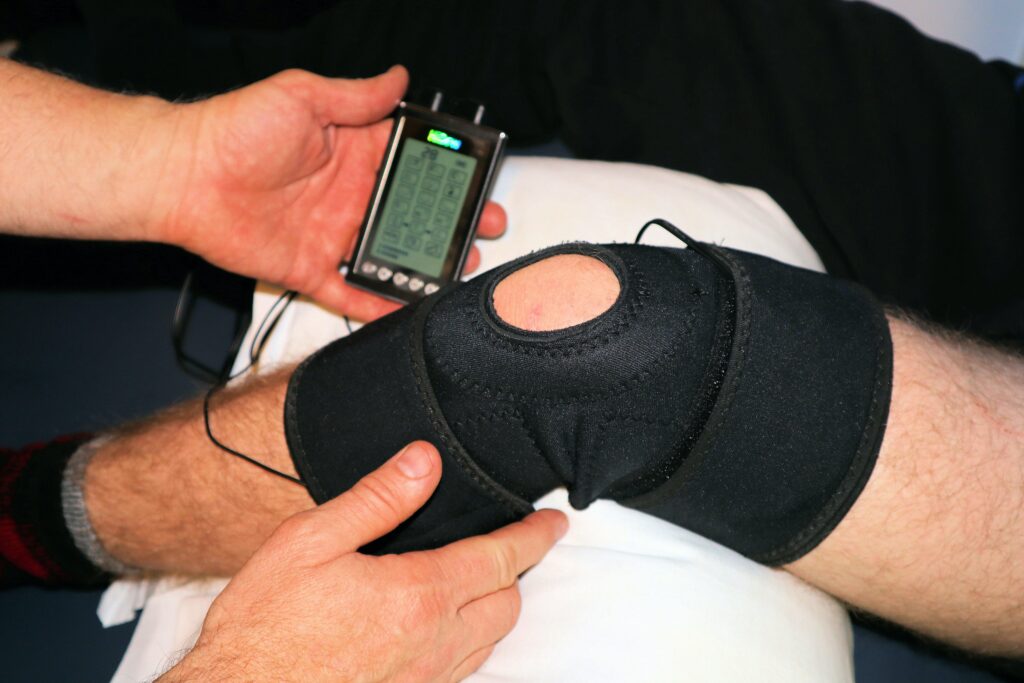Knee pain is a common ailment that can affect individuals of all ages and backgrounds. Whether it’s due to injuries, arthritis, or other underlying conditions, finding relief from knee pain is a priority for many. While it’s crucial to consult with a healthcare professional for proper diagnosis and treatment, there are several home remedies and lifestyle changes that can help alleviate knee pain. In this guide by Mohit Tandon Burr Ridge, we will explore various home remedies for Knee Pain in detail to provide you with a holistic approach to managing knee discomfort.

Hot and Cold Therapy:
- Hot Compress: Firstly, Applying a hot compress or heating pad to the affected knee can help relax muscles, improve blood circulation, and reduce stiffness. Use it for 15-20 minutes at a time.
- Cold Compress: Cold therapy can help reduce inflammation and numb the pain. Apply an ice pack wrapped in a cloth for about 15 minutes. Repeat as needed.
Elevating the Leg:
- Secondly, Elevating the leg can help reduce swelling by allowing fluids to drain away from the knee. Prop your leg up on a pillow while resting to promote better circulation.
Compression Wraps:
- Thirdly, Compression wraps or knee sleeves provide support to the knee joint and can help reduce swelling. Ensure that the wrap is snug but not too tight to avoid compromising blood circulation.
Gentle Exercise:
- Accordingly Mohit Tandon from Burr Ridge, Low-impact exercises like swimming and cycling can help strengthen the muscles around the knee without putting excessive strain on the joint. Consult a physiotherapist for a tailored exercise program.
Weight Management:
- Maintaining a healthy weight is crucial for knee health. Excess weight can add strain to the knee joints, exacerbating pain. Adopting a balanced diet and regular exercise can contribute to weight management.
Herbal Remedies:
- Turmeric: The active compound in turmeric, curcumin, has anti-inflammatory properties. Adding turmeric to your diet or taking supplements may help reduce knee pain.
- Ginger: Ginger is known for its anti-inflammatory effects. Consuming ginger tea or incorporating ginger into meals may provide relief.
Essential Oils:
- Certain essential oils, such as lavender, eucalyptus, and peppermint, have analgesic and anti-inflammatory properties. Dilute these oils with a carrier oil and massage onto the affected area for relief.
Acupuncture:
- Acupuncture involves the insertion of thin needles into specific points on the body. Some studies suggest that acupuncture can help reduce knee pain and improve joint function.
Epsom Salt Soaks:
- Epsom salt contains magnesium, which can help relax muscles and reduce inflammation. Add Epsom salt to a warm bath and soak the affected knee for 15-20 minutes.
Healthy Diet:
- A diet rich in anti-inflammatory foods, such as fatty fish, berries, and leafy greens, can help manage knee pain. Additionally, omega-3 fatty acids found in fish oil supplements may have anti-inflammatory effects.
Yoga and Stretching:
- Mohit Tandon from Burr Ridge, Gentle yoga poses and stretching exercises can improve flexibility and strengthen the muscles around the knee. Consult with a yoga instructor for poses that are safe for your condition.
Rest and Relaxation:
- Giving your knee adequate rest is crucial for recovery. Avoid activities that worsen the pain and ensure you get enough sleep to support overall healing.
Over-the-Counter Pain Relievers:
- Non-prescription medications like ibuprofen or acetaminophen can provide temporary relief from knee pain. However, use them as directed and consult with a healthcare professional if pain persists.
Hydration:
- Staying well-hydrated is essential for joint health. Water helps lubricate the joints and supports overall bodily functions.
Cabbage Leaves Compress:
- Some people find relief by applying cabbage leaves to the knee. Crush the leaves to release their natural juices, and then apply them to the affected area, securing with a bandage.
Conclusion:
Lastly, Incorporating these home remedies into your daily routine can contribute to the management of knee pain. However, it’s crucial to consult with a healthcare professional for a proper diagnosis and personalized treatment plan. Additionally, if the pain is severe, persistent, or accompanied by other concerning symptoms, seek medical attention promptly. Remember that these home remedies are supportive measures and should not replace professional medical advice and care.
